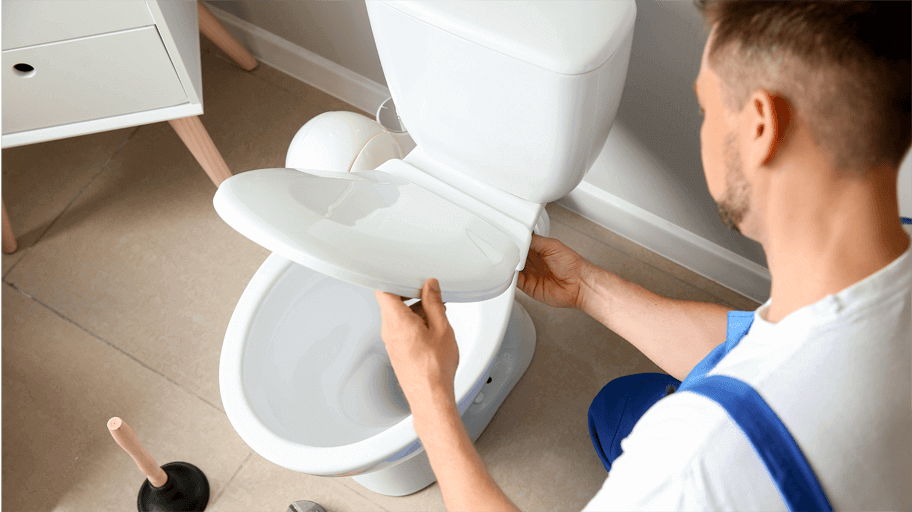5 Surprising Ways To Unblock A Toilet Without A Plunger
Finding your toilet clogged can be a frustrating experience, especially when you don't have a plunger at hand. While plungers are typically the go-to tool for this common household issue, there are several other effective methods to tackle a clog. This article will introduce you to five surprising ways to unblock your toilet without needing a plunger, using items you likely already have at home.
Hot Water and Dish Soap
One of the simplest and most effective methods for unblocking a toilet is using hot water and dish soap. The dish soap helps to lubricate the clog, making it easier to dislodge, while the hot water can help break down any fats or oils causing the blockage. To use this method, squirt a generous amount of dish soap into the toilet bowl. Then, pour hot (but not boiling) water into the bowl. Allow it to sit for 10-15 minutes to let the soap and water work on the clog. After waiting, flush the toilet to see if the water drains away, clearing the clog.
Baking Soda and Vinegar
The chemical reaction between baking soda and vinegar can also help to dislodge a toilet clog. This method is not only effective but also uses natural ingredients. Start by pouring one cup of baking soda into the toilet bowl. Follow this by adding one cup of vinegar. You'll notice the mixture will start to fizz, which is a sign that it's working on the clog. Allow this fizzy reaction to continue for about 30 minutes. After this time has passed, flush the toilet to see if the clog has been cleared. This method is especially useful for minor clogs caused by organic materials.
Using a Toilet Brush
If you don’t have a plunger, a toilet brush can serve as an alternative tool for unblocking a toilet. The bristles can help to create the necessary pressure to dislodge the blockage. To use a toilet brush, insert it into the drain hole of the toilet. Push and pull the brush rapidly, trying to create a vacuum effect similar to what a plunger would do. Repeat this motion several times until you see the water starting to drain properly. This method is effective for clogs that are not too deep within the plumbing system.

Hot Water and Dish Soap
One of the simplest and most effective methods for unblocking a toilet is using hot water and dish soap. The dish soap helps to lubricate the clog, making it easier to dislodge, while the hot water can help break down any fats or oils causing the blockage. To use this method, squirt a generous amount of dish soap into the toilet bowl. Then, pour hot (but not boiling) water into the bowl. Allow it to sit for 10-15 minutes to let the soap and water work on the clog. After waiting, flush the toilet to see if the water drains away, clearing the clog.
A Wire Coat Hanger
A wire coat hanger can be transformed into a handy tool for unblocking a toilet. This method is particularly useful for clogs that are close to the surface and can be physically broken up. To use this method, unwind the coat hanger and straighten it out. Create a small hook at one end. Carefully insert the hook into the toilet drain, and twist and maneuver it to break up the clog. Be cautious not to scratch the porcelain. Once you’ve broken up the blockage, flush the toilet to clear away the debris. This method can reach clogs that are just out of reach for other tools.
Using Epsom Salts
Epsom salts can be a surprising but effective way to unblock your toilet. The salts work to break down the clog, and the process is relatively simple. Start by mixing two parts baking soda with one part Epsom salt and adding a few tablespoons of liquid dish detergent. Pour the mixture into small containers like ice-cream cups or muffin tins and let them harden overnight. Drop one of these "bath bombs" into the toilet bowl along with a few glasses of warm water. Allow it to sit for a few hours to dissolve the clog. After waiting, flush the toilet to clear the blockage.
Conclusion
In summary, a clogged toilet doesn’t always require a plunger to fix. There are several alternative methods, including using hot water and dish soap, baking soda and vinegar, a toilet brush, the plastic bottle method, a wire coat hanger, and Epsom salts. These methods are simple, effective, and use common household items. Next time you encounter a clogged toilet, give one of these surprising solutions a try before reaching for a plunger or calling a plumber.
How to Clean Gutters and Clogged Roof Drains











